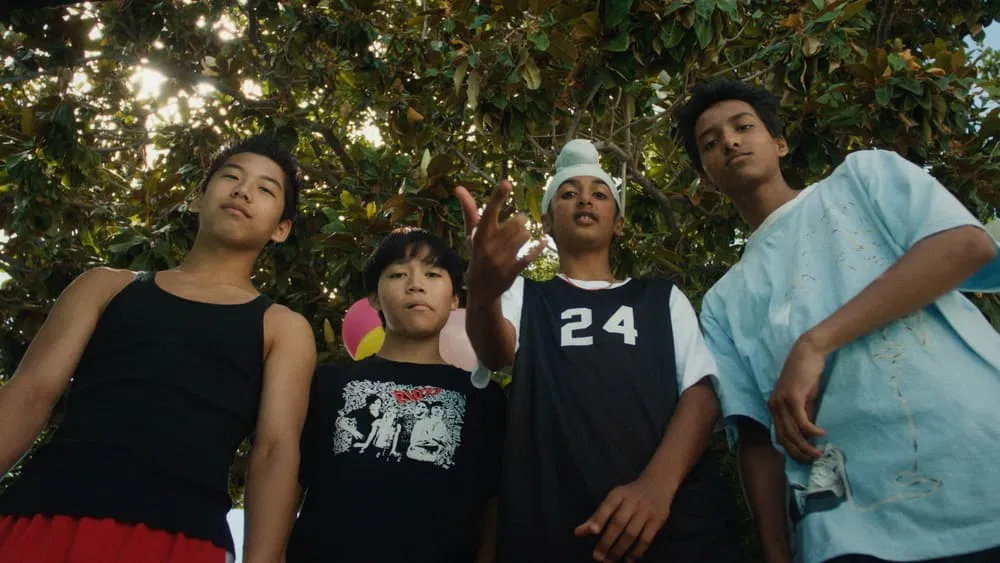Too many coming-of-age films (come to think of it, maybe just *films* in general) are afraid of making their characters unlikeable. It hurts their commercial prospects because audiences fear seeing who they really are. They want fantastical, aspirational characters that they can look up to. They want heroes who, even if they make the occasional wrong decision, can always redeem themselves. Films need to stop giving audiences what they want, and instead make them confront the messiness of life. They need to show people it’s okay to fuck up and not resolve your issues. They need to be real.
In his debut feature “Dìdi,” Sean Wang is confident enough that the audience will, if not relate, at least empathize enough with his uninspiring lead to be okay with the messiness. The character’s unlikeability isn’t a bug, it’s a feature. Do you know why? Teenage boys are incredibly unlikeable! Trust me, I have experience to back that up. They say horrific things to one another, they make stupid decisions, and they take their anger out on their loved ones even when they don’t mean it. Though the specifics of young Chris’s life may not be a one-to-one reflection of your own, the emotions are. And even then, at least for me, the specifics of being a teenage boy growing up online are uncomfortably accurate.
My favorite sequence comes when Chris texts the girl he likes and his friends try to help him. Chris is hopeless, he has absolutely no idea what he’s doing. So, his friend Fahad takes his phone and sends an explicit message, backtracks by saying his friend stole his phone (the traumatic flashbacks this brought on, woof), and ends up getting him a date. The ability to take control of the narrative on your terms and your timeline regardless of who you might be in person is a critical element of online communication. While it will occasionally bring some joy, it always comes back to bite you in the ass. It does for Chris, but where another movie might allow him to make amends and come to an understanding with this girl, “Dìdi” makes Chris stay with his mistakes, forced to wonder forever what might have been.
While “Dìdi” can stand apart from many of its coming-of-age contemporaries, it still features of the hallmarks of a Sundance crowd-pleaser (unsurprisingly, it won the Audience Award there this year). It’s formally safe, only getting a bit more adventurous when it attempts to bounce around the internet on Chris’s computer, and it will typically pick the more conventionally satisfying story decision if given the opportunity. There’s a reason for this, of course. Sundance is no longer at the cutting edge of independent cinema in the United States, it is now a place for big money to come in and buy distribution rights for the types of movies the studios would have been making 30+ years ago. These movies may be financial gambles, but are built to be safe, mainstream successes.
This is not a problem with “Dìdi” itself, but the film does reflect how risk-averse the American film landscape is that a movie being slightly different from the tonality of others like it feels exciting. It’s a good movie, but it is not a great movie. We have seen films like it before, and we will continue to until the medium ceases to exist. Hopefully, the film will bring Sean Wang enough success that we will end up seeing a great one from an artist with a strong voice. But that voice needs to shine through more in his formal skills, rather than having it all on paper.

